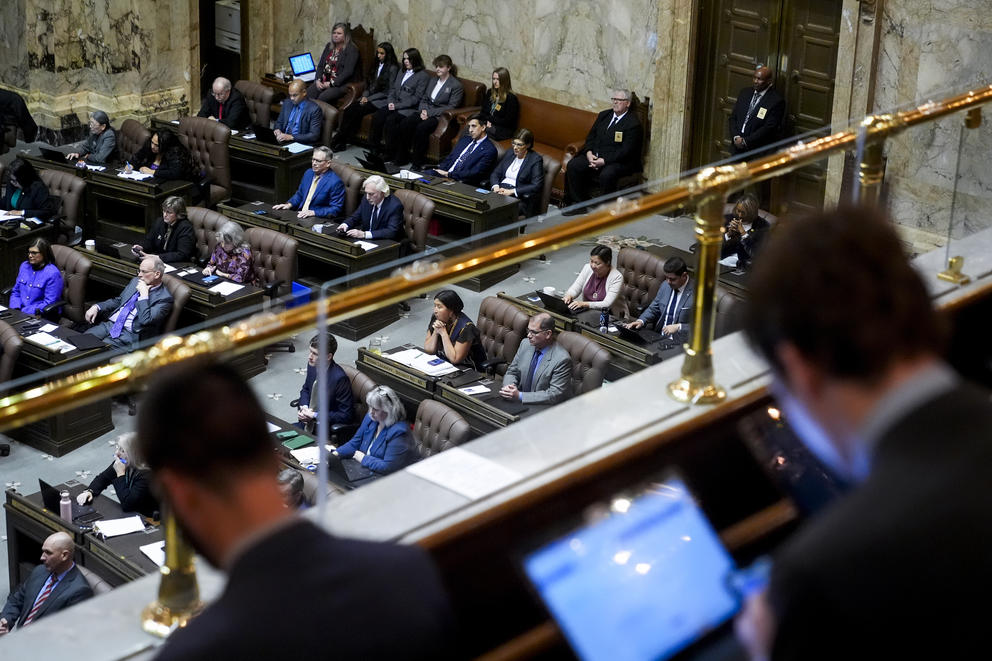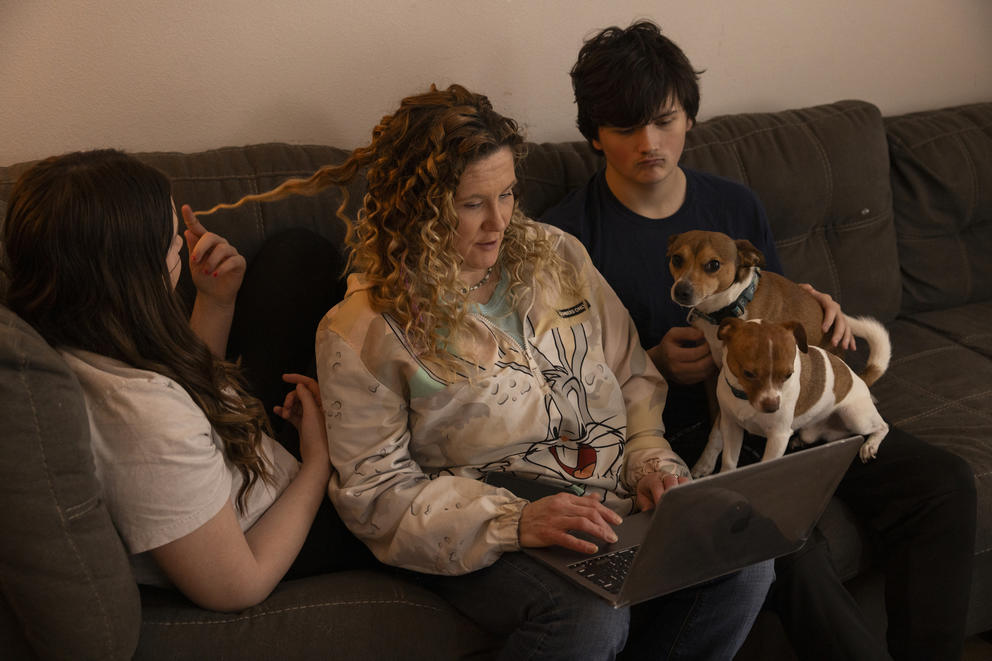WA Supreme Court upholds temporary ban on high-capacity magazines

Guns for rent at the Bellevue Indoor Gun Range on Monday, Aug. 22, 2022. (Amanda Snyder/Cascade PBS)
On Thursday morning, Washington Supreme Court Commissioner Michael Johnston issued a ruling upholding a temporary statewide ban on the sale of high-capacity magazines for guns.
Earlier this month, Cowlitz County Superior Court judge Gary Bashor ruled that the state Legislature’s 2022 law banning high-capacity magazines is unconstitutional. Commissioner Johnston issued an emergency stay immediately following Bashor’s ruling to temporarily keep the state ban in place.
Johnston’s April 25 ruling extends the temporary ban on the sale of high-capacity magazines while the case makes its way through the appeals process.
In September 2023, Washington State Attorney General Bob Ferguson sued Gator’s Custom Guns in Kelso. The suit alleged the store had offered more than 11,400 high-capacity magazines for sale since the state ban on magazines with more than 10 rounds went into effect in July 2022.
After Bashor issued his ruling overturning the ban on April 8, Ferguson successfully petitioned the state Supreme Court for an emergency stay, arguing the law was both constitutional and critical for addressing mass shootings. Limited-capacity magazines force shooters to stop and reload more frequently, giving people time to escape or disarm the shooter, he argued.
In the ruling today upholding that emergency stay, Johnston emphasized the use of high-capacity magazines in mass shootings. He wrote, “The State contends there is an unacceptable public safety risk if I do not impose a stay and the trade in [high-capacity magazines] resumes.”
The brief continues, “It is all but certain mass shootings will occur in Washington. This legislation will not necessarily prevent them from happening, but it will increase potential victims’ chances of survival. By declaring the statute unconstitutional and enjoining its enforcement, the superior court deprives Washington’s citizens of needed protection enacted by their elected representatives.”
Johnston also cited the rush to buy high-capacity magazines in the 90 or so minutes between Bashor’s ruling and Johnston’s issue of an emergency stay.
Today’s ruling states that Gator’s Guns boasted on social media that they sold high-capacity magazines to about 250 customers in that brief window on April 8.









